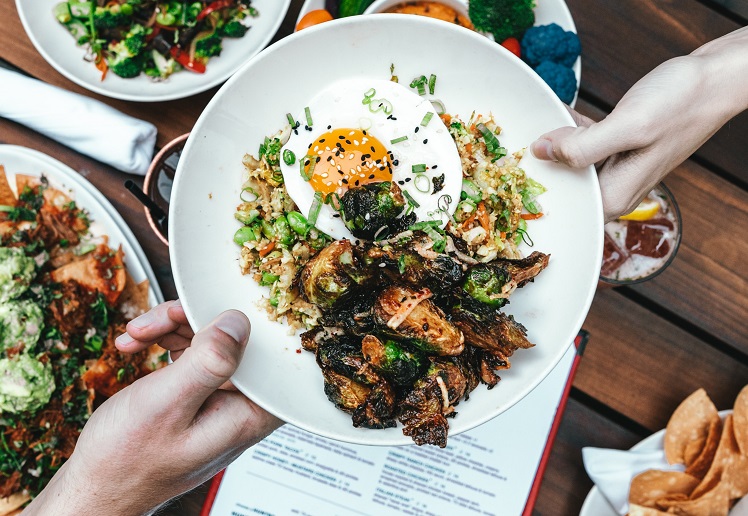Americans love to eat out, and yet recent research The Hartman Group found in our Modern Approaches to Eating report details how restaurant offerings often present challenges to individual eating approaches (notably diets) as well as decisions that relate to ordering take out and celebrating.
We found that with all the issues relating to managing a healthy weight today as voiced by consumers (45% say are trying to lose weight), many believe that unchecked indulgence in “treats, high-calorie beverages, and restaurant food” is most often the culprit when they feel their diet has worsened. In fact, 3 in 10 consumers say their diets have gotten worse since prior to COVID-19 because they “eat out more often.”
While eating out more often has certainly benefited a restaurant industry struggling to work its way out of pandemic and economic-driven headwinds, our report finds that use of restaurants — typically a site of more leniency and indulgence when it comes to health and wellness — influence 35% of dieters to say they often do not adhere to their diets when dining out, followed by 22% who say the same when ordering take-out or delivery.
Much of the departure from normal eating behavior rests on the fact that restaurant occasions are often viewed as special instances where consumers feel like they can or should “cheat” or indulge. This often places foodservice-sourced occasions outside of the normal constraints of a consumer’s particular eating approach. As such, restaurants can also be viewed as a site of temptation that consumers may try to avoid when sticking to their specific diet or when a specific eating approach is a priority.
The research finds that for consumers pursuing specific diets and eating approaches across diets, dining out is a top situation when eating rules are set aside, though the specific challenges with dining out differ by diet. For diets that rely on the inclusion or exclusion of specific types of food (e.g., low carb, whole foods, free-from, vegan or vegetarian), the right options may simply not be available on the menu. For example, among consumers who say they followed a low-carb diet in the past year, 27% say a major challenge to their diet is “restaurants often not offering the right food.”
How foodservice and restaurants can help
When consumers choose to pursue a specific diet or eating approach, their own willpower is just one of many factors they must contend with. Some of the most complex and intractable challenges that consumers face are related to the social dynamics that pervade their lives at every level, from intimate family interactions to experiencing the effects of broad cultural trends at a restaurant. Foodservice operators looking to win over the trust and loyalty of consumers must tread the fine line between providing options that facilitate adherence to chosen diets and eating approaches without perpetuating a culture of dieting that makes consumers feel as though every food and beverage choice will make or break their health or ability to reach or maintain a desired weight.
While celebrating and indulging while eating out often create conflict for consumers trying to follow specific eating approaches, restaurants have made some progress in terms of assisting: Menus tend to reflect cultural and dietary trends, meaning that as a particular eating approach, diet or dietary restriction becomes more well known or widespread, more options tend to show up in foodservice. This can provide appropriate options for consumers who adhere to such eating approaches and can even help them to explore new dishes or cuisines that fit their unique needs.
Consumer strategies for aligning their diet or eating approach with their lifestyle can serve as inspiration to companies looking to better understand how food and beverage choices are made and what types of options can meet specific consumer needs.
Looking forward, in terms of how a diverse landscape of headwinds experienced by consumers impact eating out, food shopping and food procurement in general, our newest study, Food Sourcing in America 2022 builds on over 20 years of Hartman Group shopper and eating occasion research to provide insights into how consumer sentiments and behaviors will impact the food and beverage marketplace both today and in the future.
Read more from SmartBrief:
- Delivery services set their sights on autonomous tech
- What’s ahead in grocery shopping and food procurement?
- The changing face of plant-based dining in the digital age
As CEO of The Hartman Group, Demeritt drives the vision, strategy, operations and results-oriented culture for the company’s associates as The Hartman Group furthers its offerings of tactical thinking, consumer and market intelligence, cultural competency and innovative intellectual capital to a global marketplace.
________________________________________________
If you liked this article, sign up for SmartBrief’s free email newsletter from the National Restaurant Association. It’s among SmartBrief’s more than 250 industry-focused newsletters.
